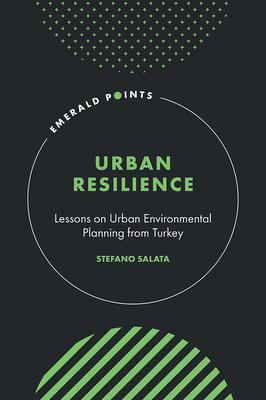Advocating for the reintroduction of natural areas and biodiverse green spaces within our cities, Urban Resilience stems from the two years' experience living and teaching ecological planning in Turkey. What is resilience? What does it mean practically to design resilient cities?
Demonstrating that the expansion of the ecological footprint of urban areas is no longer sustainable, Stefano Salata underscores that authentic resilience in urban planning necessitates embracing the reduction and de-sealing of urban surfaces, which he advocates for as the sole viable means of confronting the challenges posed by climate change. Providing a fresh methodological outlook on urban adaptation, Salata introduces a novel approach to understanding resilience, streamlining the key components of knowledge that urban planners need to acquire in order to effectively address the challenges posed by climate change. Supplemented with short personal reflections on Turkish space and society, this study explores the societal significance of embracing a new cultural paradigm characterized by reduced consumerism.
Taking the Turkish case as a pioneering testing ground, Salata substantiates the potential of resilient approaches for urban transformation, affording us the opportunity to evaluate the efficacy of various solutions across the globe.
